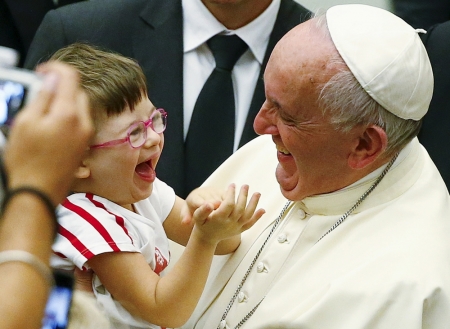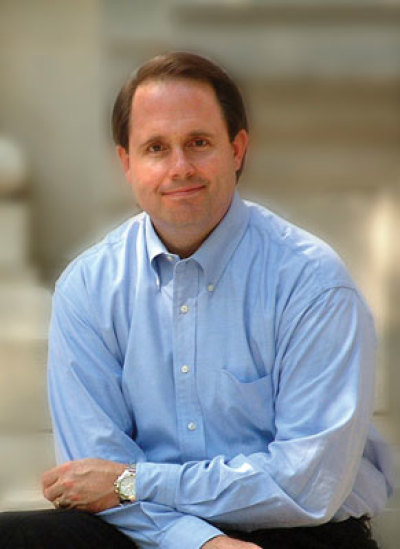A Suprising Reason for the Pope's Humility

This week, Pope Francis will make his first visit to the United States. When you think of him, what adjectives come to mind? For most of us, humility is at the top of the list.

And rightly so. After his election, the new pope rode back to the St. Martha guesthouse with the other cardinals rather than using the papal car. He chose to live in the guesthouse rather than in the opulent papal apartment. He regularly welcomes trash collectors and cleaners to daily mass, carries his own luggage on planes, and is driven in a Ford Focus.
According to Paul Vallely's recent article in The Atlantic, such humility is part of a deliberate strategy on Francis's part. In April 1973, at the age of 36, he became head of all Jesuits in Argentina and Uruguay. He was forced to confront a number of divisive issues, some theological and others political. By his own admission, his leadership style was divisive and autocratic, leading to significant controversy and opposition.
In light of this difficult experience, he identified the authoritarian and egotistical elements of his personality. And he adopted behaviors intended to counteract these weaknesses. For instance, he developed the habit of ending all encounters by asking the other person to pray for him. He began spending much more time with the poor. He chose to take public transportation, live in his own apartment, and cook his own meals.
By the time he became pope, his commitment to acts of humility had become his lifestyle. And they will form a significant part of his legacy.
Who we are affects more people than we can imagine. As Oswald Chambers noted, "A river reaches places which its source never knows."
I was recently reading 1 Samuel, and came to this chilling statement: "The word of the Lord was rare in those days; there was no frequent vision" (3:1). The reason is explained in the previous paragraph: the high priest and his sons betrayed God's word and will, and would soon face his judgment (1 Sam. 2:27-36). God could not speak to the people through them. So the entire nation suffered the consequences of their leaders' sin.
The positive is true as well. In 701 bc, Assyrian armies threatened to annihilate the nation of Judah. King Hezekiah and Isaiah the prophet turned to God. And "the Lord sent an angel, who cut off all the mighty warriors and commanders and officers in the camp of the king of Assyria" (2 Chronicles 32:21). The entire nation was saved because of the godliness of its leaders.
Physicists speak of the "butterfly effect," the degree to which small actions produce large consequences. The same is true spiritually. Other people watch you respond to opportunities and challenges. They see the way you treat those who can help you and those who cannot. The way you live affects the world.
Like Pope Francis, most of us deal with character faults and repetitive failures. Have you identified yours? Have you taken proactive steps to counter them with acts of Christian character?
David was wise to pray, "Let not those who hope in you be put to shame through me, O Lord God of hosts" (Psalm 69:6). Would you make his prayer yours, right now?
This article was originally posted here.





















